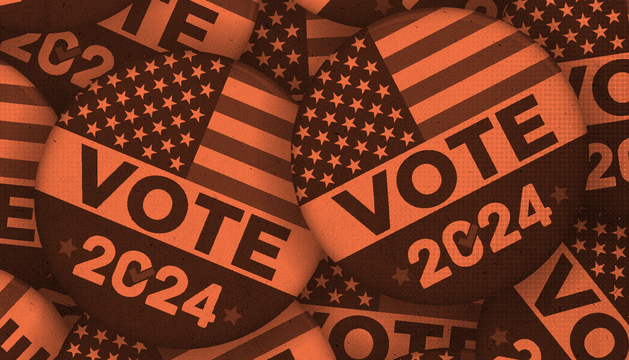Authority to Prevent and Respond to Certification Abuses
State Officials Can Issue Opinions and Guidance
The WEC has statutory authority to issue guidance documents and advisory opinions. Wis. Stat. §§ 5.05(6a), 227.112. Prior to the election, the WEC may choose to exercise this authority to emphasize the mandatory, nondiscretionary nature of election certification and the potential consequences of refusing to certify. Michigan’s director of elections, for example, issued a similar message in a letter to a county board of canvassers after two members indicated that they might not certify election results.
The attorney general is required to issue a written opinion “upon all questions of law submitted to him or her by the legislature, either house thereof or the senate or assembly committee on organization, or by the head of any department of state government.” Wis. Stat. § 165.015(1). The attorney general also has an obligation to advise district attorneys and corporation counsel upon request. Wis. Stat. §§ 59.42(1)(c), 165.25(3). Finally, the WEC may request opinions from the attorney general under some circumstances. Wis. Stat. § 5.05(6a)(a)4. If any such official requests an opinion on the consequences of refusing to certify election results, the attorney general could explain the potential for both criminal and civil liability, detailed below. The attorney general could also provide this information to election officials through informal means, such as a letter or news release. The Michigan attorney general’s office, for example, has responded to questions concerning potential civil litigation against officials who fail to perform a clear legal duty under state law.
State Officials Can Exercise Their Statutory Authority
to Enforce the Mandatory Duty to Certify
Wisconsin law gives the WEC clear statutory authority to take action if a county clerk fails to send a certified statement of the county’s election results: “If any county clerk fails or neglects to forward any statements, the commission may require the clerk to do so immediately and if not received . . . by the 11th day after any other election [aside from the primary], the commission may dispatch a special messenger to obtain them.” Wis. Stat. § 7.70(1)(b). This “special messenger” provision gives the WEC the authority to demand that counties certify their results.
State Officials and Other Affected Parties Can Obtain a Writ of Mandamus
If relief under the special messenger provision is not available for any reason, a mandamus action can compel an official to perform a ministerial duty required by law. The Wisconsin Supreme Court has long acknowledged that officials have a ministerial, nondiscretionary duty to canvass and certify elections by the statutory deadlines. State ex rel. Husting v. State Bd. of Canvassers, 150 N.W. 542, 547, 551–52 (Wis. 1915); Att’y Gen. ex rel. Bashford v. Barstow, 4 Wis. 567, 794–800 (1855). State officials, aggrieved candidates, and affected voters likely have standing to seek such relief.
At the state level, both the WEC and the attorney general have statutory authority to sue in the event of a refusal to certify. The WEC can sue for mandamus relief “to enforce any law regulating the conduct of elections or election campaigns, other than laws regulating campaign financing, or ensure its proper administration.” Wis. Stat. § 5.05(1)(d). The statute requires the WEC to bring any such actions in the “circuit court for the county where a violation occurs or may occur.” Wis. Stat. § 5.05(1)(d).
Wisconsin law also authorizes either the attorney general or the relevant district attorney to sue for mandamus relief “to compel compliance with the law” whenever “a violation of the laws regulating the conduct of elections or election campaigns, other than a violation of the laws regulating campaign financing, occurs or is proposed to occur.” Wis. Stat. § 5.07. This section does not require the attorney general or district attorneys to sue in the circuit court; an original proceeding in the Wisconsin Supreme Court may provide a more efficient path for relief.
Courts Have Tools to Enforce Court Orders If an Official Still Refuses to Certify
If a certifying official refuses to comply with a mandamus order, the party who obtained the order may seek contempt sanctions. Wis. Stat. §§ 785.01(1), 785.02. Only the district attorney or the attorney general can seek punitive sanctions. Wis. Stat. § 785.03(1)(b).
State Officials Can Impose Penalties Against Rogue Certifying Officials
Refusing to certify an election could violate several state criminal laws and result in charges. See, e.g., Wis. Stat. §§ 12.13(2)(a), 12.13(2)(b)(4).
An election official who is convicted of violating Wisconsin’s election code is also statutorily “disqualified to act as an election official” for five years after the time of conviction. Wis. Stat. § 12.60(3).
District attorneys generally have authority to prosecute violations of the election code, as well as other criminal conduct that takes place within their jurisdictions. Wis. Stat. §§ 11.1401(2), 12.60(4). The attorney general has the authority to investigate crimes that are “statewide in nature, importance or influence,” which should include violations of the election code and misconduct in public office statute arising from certification abuses. Wis. Stat. § 165.70(1)(a).
Finally, the WEC has the authority to investigate complaints alleging violations of the election code. It can prosecute alleged civil violations and refer alleged criminal violations to the appropriate prosecutors. Wis. Stat. § 5.05(2m).
